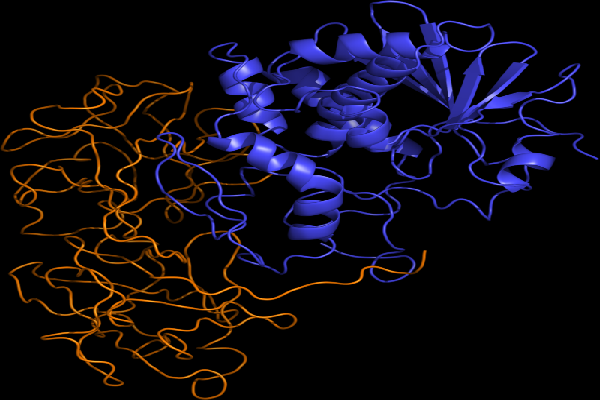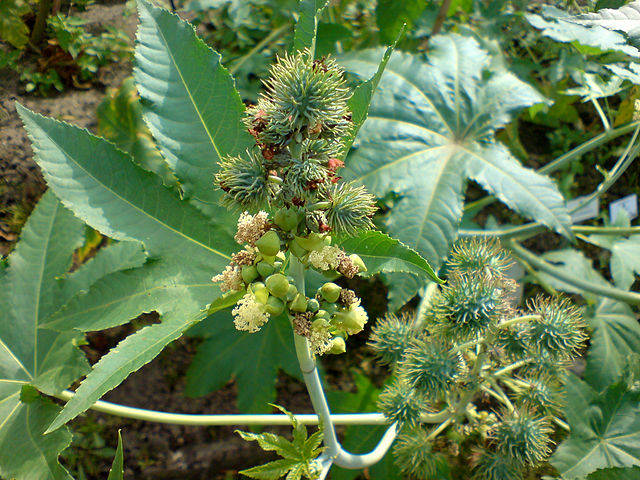Deadly plant series: *Riccinus communis* and the curious case of Georgi Markov
He has fled his home country a few years back when he saw that his life could be in danger as a dissident writer and a critic of the Bulgarian communist government. Despite studying chemical engineering and working as a chemical engineer and technical school teacher, he has grown to love literature. Hence, little wonder that he had a successful career as an acclaimed novelist, a playwright and a scriptwriter with the majority of his work been critical of the communist government. Hence, it came as a little surprise when he was labelled 'persona non grata' by the government. He first fled to Italy and then to Britain where he settled down as a political asylum seeker. Perhaps he would return to his home country one day, he thought.
A sharp, insect-bite like pain at the back of his right thigh jolted him back to life. Almost at the same time, a heavily built man with a foreign accent (later suspected to be a KGB agent) stooped to pick an umbrella beside him and mumbled 'sorry' before dashing to board an already waiting taxi at the other side of the street. Georgi Markov did not think much about the incident and continued with the activities of the day until he developed fever later on. He was admitted to the hospital in the evening and died three days after as a result of complications due to the sickness.
After series of investigations and coronary examination, he was purported to have died from a biological compound known as ricin which was shot in form of a pellet from an umbrella gun (picked by the built, accented man at the bus stop). How could something so minute have such a potent, deleterious effect?
Ricin
Ricin is a biological compound found in a plant known botanically as Ricinus communis. The compound which happens to be one of the most toxic and biologically poisonous substances in nature was first isolated from the seeds of the plant in the year 1888 by a German researcher Peter Hermann Stillmark.

Ricin in purified form could be lethal in minute quantity if ingested, inhaled or injected into the human body. The purified form of the compound appears in form of a white powder and only a few grains of it is needed to cause mortality in an adult human. According to the European Food Safety Authority (EFSA), about 22 micrograms of the substance per kilogram body weight constitutes the mean lethal dose to human if it is injected or inhaled into the body. However, ingested forms have been reported to have less toxic effects due to the fact that some of the substance becomes inactivated within the stomach.
The purified form of ricin can be derived from the seeds of Ricinus communis or from the waste generated during the production of castor oil. The later has been reported to have a wide variety of medicinal as well as cosmetic uses. It has been repoted by several works of literature to have antimicrobial, anti-inflammatory as well as moisturising properties.
The bioactive compound derived its toxicity properties from its ability to inhibit protein synthesis as well as causes cell's death in the human body. It has actually been classified as a type 2 ribosome inactivation protein in some quarters. Few hours after entering the body system, ricin induces symptoms of poisoning as a result of rapid induction of apoptosis in the cells of the body. At sub-lethal doses, the biological compound has been found to be effective in selectively stimulating and programming the death of cancerous cells in the body. This particular ability opens up a new area of research of the compound as a potential candidate for the development of anticancer drugs.
Due to its toxicity to the body at a very low level of injection, ingestion or inhalation, and its relatively low cost of isolation, ricin has been considered in various quarters as a potential weapon in biological warfare. A host of countries such as United State and Britain have actually attempted to infuse ricin into bombs and artilleries that would disperse tiny pellets of the substance into the air during assaults. However, the idea was jetissioned due to the fact that the compound degrades under the effect of heat from the firing and explosion.
The plant itself: Ricinus communis
Ricinus communis is commonly known as castor oil or castor bean plant. It is a flowering, perennial shrub (grows to about 1.5 m) belonging to the Euphorbiaceae plant family. The plant is native to the Eastern Africa, Mediterranean Basin and India but usually grown as exotic ornamental species in several other countries.

Phytochemical analysis of the tissues of castor oil plant showed the presence of bioactive compounds such as flavonoids, phenolic compounds, fatty acids, amino acids, terpenoids and a host of others. These substances are in addition to the ricin component. Different parts of the plant have been and are still been utilized in the treatment of a wide variety of ailments. According to Marwat and his co-researchers, the plant has demonstrated its effectiveness in the treatment of diseases/disorders such as arthritis, back and muscle aches, bilharziasis, chronic headache, constipation, expulsion of placenta during births, gallbladder related pains, menstrual cramps, rheumatism, insomnia and a lot of other diseases.
Barring any incident of mistaken ingestion, injection and inhalation of ricin, Ricinus communis plant and its product can be put to good or evil usage, depending on whose hand it falls.
Thank you all for reading.
References
Convenient Delegation Links:


Oseni Shaid | Ambassador (Nigeria)
Email : [email protected]

Join a community with heart based giving at its core







Hell @gentleshaid
What a subtle way of killing one's target. The account of the series of events that led to the death of Georgi Markov is quite unfortunate. I bet if ordinary men in the streets should know about this Ricin, death will be a thing of every now and then.
But I guess in their natural form in castor oil or castor bean plant, their concentration ain't much to have lethal effect right?
Regards
@eurogee of @euronation and @steemstem communities
You are right. Until isolated and purified from the seeds, the concentration in individual seeds is not up to a lethal level. An average human adult would need to ingest like 7 to 8 of the seed in order for the ricin toxicity to be pronounced.
Nice write up sir, it was really educating.
This Ricinus communis plant that contains ricin pellet which according to you could be fatal to life when inhaled, swallowed or injected into the body (as in the case of Goegi markov) even in small doses and at the same time an anticancerous agent and used in making cosmetics. My question now is how is this plant harvested or harnessed to avoid inhalation of its pellets
The ricin has to be isolated from the castor beans it to be effective. Ordinarily, the plant looks innocent and not harmful when in contact with human.
So there must be a way the body is shielded from the ricin when it is being isolated from the castor beans
All measures must be put in place to ensure that ricin doesnt get into the body system, especially the purified one
Interesting
Thank God we don't have such a plant here in Nigeria even though it is medicinal.
We actually have it in abundance here in Nigeria. I have seen it around several times..
But you said it is found in india and east Africa
I said it is native to these regions. However, it is found growing in other regions as exotic species.
Now i understand it. Thank you sir
What a discovery! The ricin is such an effective way to kill without being noticed.
Thanks for sharing.
@sciencetech
STEM contributor
This plant has a fancy name (Castor bean plant). Who would believe that it is this deadly? Well, just like you pointed out, it can be used for good and evil - looks like two sides of a sword, lol.
Nice piece as usual baba
This post has been voted on by the steemstem curation team and voting trail.
There is more to SteemSTEM than just writing posts, check here for some more tips on being a community member. You can also join our discord here to get to know the rest of the community!
Hi @gentleshaid!
Your post was upvoted by utopian.io in cooperation with steemstem - supporting knowledge, innovation and technological advancement on the Steem Blockchain.
Contribute to Open Source with utopian.io
Learn how to contribute on our website and join the new open source economy.
Want to chat? Join the Utopian Community on Discord https://discord.gg/h52nFrV
@gentleshaid Many congratulations for supporting the quality content, and I invite you to observe my content @dialexandro
This is really interesting. When I read to the point that a biological weapon was used on Georgi, I scrolled back up to check the date...wow! By 1978, Ricin had already been discovered and even used professionally by assassins.
Wonders of the botanical world!!!
If some political rivals in some countries get hold of this weapon...hmm, I can only imagine what use they will put it to.